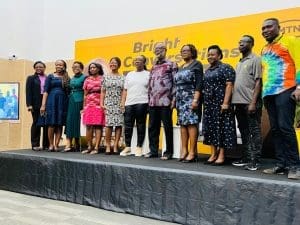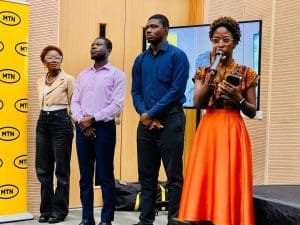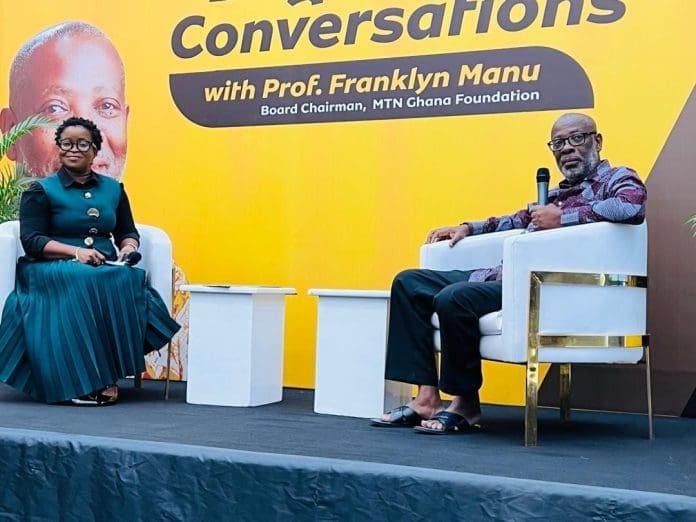Professor Franklyn Manu, Board Chairman of the MTN Ghana Foundation, has underscored the Foundation’s contributions to Ghana’s development while urging African countries to adopt more sustainable approaches in tackling health, education, and economic challenges.
He shared these insights during the Bright Conversations series, where he reflected on his leadership journey, the Foundation’s impact since 2007, and the broader challenges hindering Africa’s progress.
Transforming Lives Through the MTN Ghana Foundation
Prof. Manu, a distinguished academic and corporate strategist with leadership experience spanning Ghana, Africa, and the United States, has led the MTN Ghana Foundation for almost two decades. Under his leadership, the Foundation has focused on three key areas: health, education, and economic empowerment, making a positive impact on millions of Ghanaians.
He attributed the Foundation’s success to its “dedicated team,” emphasizing that their commitment drives impactful initiatives nationwide. “Passion is what keeps change alive. Without it, organizations find it hard to succeed,” he noted.

During the COVID-19 pandemic, one of the Foundation’s major contributions was committing GH¢10 million to medical equipment, supplies, and financial support for health facilities across the country. However, Prof. Manu noted that public acknowledgment of these efforts has often been minimal, overshadowed by consumer complaints about telecom services.
Project Selection and Sustainability
Professor Manu explained that the Foundation carefully evaluates proposals to ensure they align with long-term development goals. He emphasized that sustainability is the top priority when approving projects.
He shared that the Foundation is shifting its focus toward technology and innovation to meet Ghana’s changing development needs, noting that infrastructure-heavy projects like hospitals are becoming more expensive and harder to sustain.
“Each proposal needs to clearly outline its sustainability plans,” he said. “We depend on our team’s evaluations to make sure resources are used efficiently and remain beneficial to communities over time.”
Africa’s Development Challenges
In addition to the Foundation’s efforts, Prof. Manu focused on Africa’s broader development challenges, highlighting unemployment, economic dependency, and weak institutional support as ongoing obstacles.
He noted that Ghanaian universities struggle with a lack of IT lecturers, while business-related courses are still overwhelmingly favoured. He praised the government’s plan to train 500,000 people in technology but emphasized the need for better alignment with long-term economic empowerment goals.
Prof. Manu emphasized the need for local authorities to play a crucial role in development planning. He proposed that regional consultants review previous projects and share insights with assemblies to boost effectiveness.
However, he admitted that challenges like staff shortages and widespread illegal money-making schemes often hinder genuine efforts for economic empowerment.
Touching on agriculture, he highlighted the importance of finding sustainable farming products to boost local economies and praised the government’s commitment to increasing investment in agriculture.
He also stressed the value of stronger partnerships with technical universities to enhance training opportunities, pointing out that while informal collaborations have shown success, formal programs are essential to equip young people with the skills they need for employment.
A Call to the Youth
The Board Chairman however, stressed that Africa’s future rests on the active participation of its youth. He urged young people to take greater responsibility for shaping their future, highlighting the role of youth employment agencies and community initiatives in creating opportunities over the past six years.
“Managing the numerous requests we receive for community projects is challenging,” he said. “We need more inclusive approaches to project selection, but above all, the youth must believe in their own potential. Believing in the future is what sustains progress.”
Through his work with the MTN Ghana Foundation and his insights on Africa’s broader challenges, Prof. Manu highlighted the vital role of passion, innovation, and teamwork in fostering development.
The MTN Bright Scholarship beneficiaries present at the event also shared testimonies about the MTN Ghana Foundation’s unwavering support and the life-changing impact it has had on their academic and professional journeys.
Several of the beneficiaries recounted how the scholarship enabled them to pursue higher education without the burden of financial constraints. They emphasized that the Foundation’s investment in their education has not only transformed their personal lives but also positioned them to contribute meaningfully to society.
Notably, some of the past beneficiaries have advanced to become medical doctors and are now serving in Ghana’s health sector. Their success stories, they said, are proof of how corporate social investment can create a ripple effect of positive change across communities
.
Source: Isaac Kofi Dzokpo/newsghana.com.gh
Source: newsghana.com.gh











